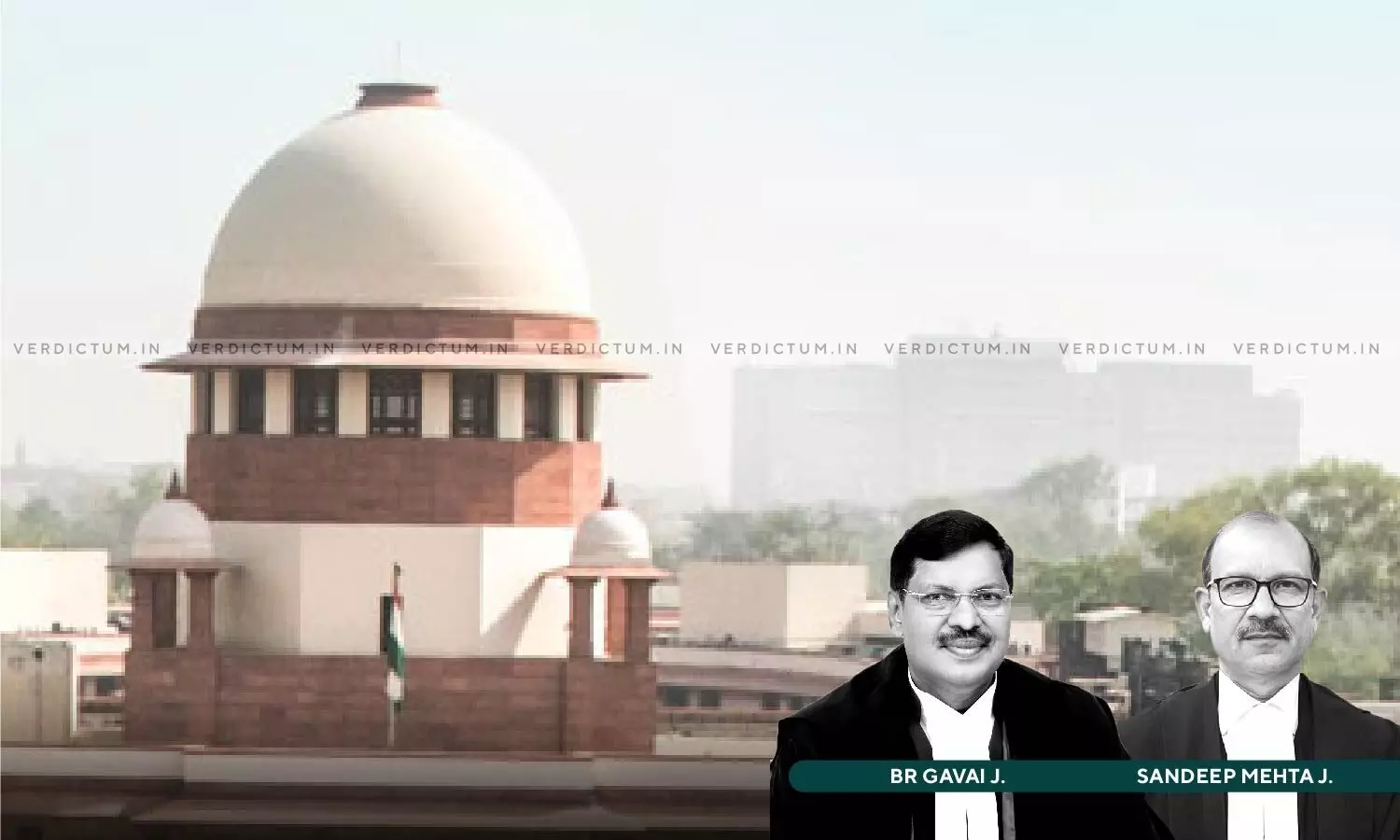
Section 141 NI Act | Complaint Must Contain Specific Averments About How And In What Manner Accused-Director Was Responsible For Conduct Of Company’s Business: SC
 |
|The Supreme Court reiterated that, for making a Director of a Company liable for the offences committed by the Company under Section 141 of the Negotiable Instrument Act, there must be specific averments in the complaint against the Director showing as to how and in what manner the Director was responsible for the conduct of the business of the Company.
The court said that merely reproducing the words of section without a clear statement of fact will not ipso facto make the director vicariously liable.
The Court was dealing with a batch of appeals filed against the judgment passed by the Madras High Court by which it rejected the prayer for quashing of cases in connection with the offence punishable under Section 138 read with Section 142 of the Negotiable Instruments Act, 1881 (N.I. Act).
The two-Judge Bench comprising Justice B.R. Gavai and Justice Sandeep Mehta said, “It could thus clearly be seen that this Court has held that merely reproducing the words of the section without a clear statement of fact as to how and in what manner a director of the company was responsible for the conduct of the business of the company, would not ipso facto make the director vicariously liable.”
Advocate Manoj V. George appeared on behalf of the appellant while Advocate Lakshmeesh S. Kamath appeared on behalf of the respondent.
Brief Facts -
The respondent, M/s. Bharti Airtel Limited was a company engaged in the business of providing telecommunication services under a license issued by the Government. One M/s. Fibtel Telecom Solutions (India) Private Limited was a company that a approached the respondent intending to obtain telecom resources for the purpose of transactional communication and requested the complainant for allotment of telecom resources. The appellant was the director of Fibtel and based on the representation made by Fibtel, the respondent had agreed to provide the required services, whereupon the parties entered into a Service Agreement vide which Fibtel had to pay Rs. 14,00,000/- as fixed monthly recurring charges to the respondent. It was thus the case of the respondent that Fibtel owed a sum of Rs. 2,55,08,309/- in lieu of the service provided to it by the respondent.
However, the grievance of the respondent was that in-spite of regular follow-ups and reminders, Fibtel failed and neglected to clear the respondent’s dues. Only thereafter, upon repeated demands made by the respondent, Fibtel furnished five post-dated cheques to the complainant. The cheque was returned to it unpaid with reason “payment stopped by drawer” and aggrieved thereby, the respondent issued a legal notice to Fibtel. On receipt of this, a payment schedule was agreed to and a cheque was drawn. However, on depositing the remaining four cheques, the same were returned to it unpaid. Hence, two complaints were filed before the Metropolitan Magistrate. The High Court dismissed the cases but directed the trial court to dispose of the case within 3 months. Aggrieved by rejection of petition to quash criminal complaints, the appellant filed an appeal.
The Supreme Court in view of the facts and circumstances of the case observed, “It can thus be seen that the only allegation against the present appellant is that the present appellant and the accused No.2 had no intention to pay the dues that they owe to the complainant. It is stated that the 2nd accused and the 3rd accused (appellant herein) are the Directors, promoters of the 1st accused being the Company. It is further averred that the 2nd accused is the authorized signatory, who is in-charge of and responsible for the day-to-day affairs of the Company, i.e., the 1st accused.”
The Court further noted that there is no averment to the effect that the appellant is in-charge of and responsible for the day-to-day affairs of the Company and it is also not the case of the respondent that the appellant is either the Managing Director or the Joint Managing Director of the Company.
The Court said that it is clear that the averments made are not sufficient to invoke the provisions of Section 141 of N.I. Act qua the appellant.
Accordingly, the Apex Court allowed the appeals and set aside the judgment of the High Court.
Cause Title- Susela Padmavathy Amma v. M/s Bharti Airtel Limited (Neutral Citation: 2024 INSC 206)
Appearance:
Appellant: Advocate Manoj V George, AOR Shilpa Liza George, Advocates Km Vignesh Ram, Nasib Masih, Akshita Agrawal, and Chaahat Khanna.
Respondent: AOR Lakshmeesh S. Kamath, Advocates Samriti Ahuja, and Karan Singh Dalal.